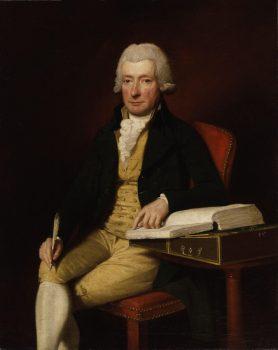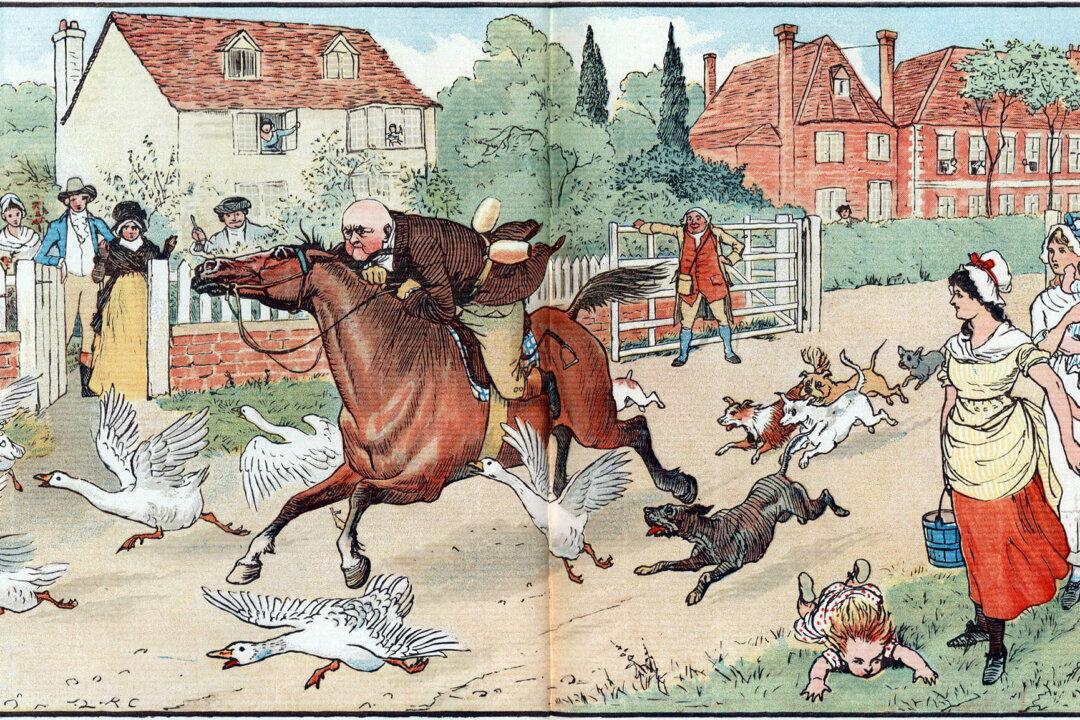
Portrait of William Cowper, 1792, by Lemuel Francis Abbott. Public Domain
These days, William Cowper (1731–1800) isn’t likely to be found on anyone’s list of Top 20 English Poets. Fifty years after his death, however, three competing collections of his poetical works continued to sell with over 100,000 copies in print. During his lifetime, his status was sufficient to induce the painter George Romney to sketch his portrait (which now hangs in the National Portrait Gallery and for which Cowper penned a thank-you poem). Today, the poet is remembered primarily for the hymns he wrote for the Olney Hymnal in collaboration with his pastor and friend John Newton. Newton contributed 280 hymns to the collection (including “Amazing Grace” and “Glorious Things of Thee Are Spoken”) while Cowper added more than 60 of his own (including “There Is a Fountain Fill’d with Blood,” “O for a Closer Walk with Thee,” and “God Moves in a Mysterious Way”).

